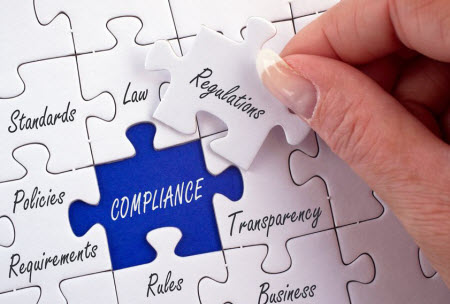
Raising Prices? Regulators Are Watching – Even if You’re UPS
During the pandemic, some retailers were accused by regulators of price-gouging essential items like hand sanitizer and face masks. Regulators are still watching and are expanding those under scrutiny.
On Friday, New York Attorney General Letitia James launched a rulemaking process to look into whether major corporations are using the pandemic and inflation as an excuse to unfairly raise prices of basic goods. Her office is also looking at rate hikes by major shipping firms even as some reported record-breaking profits.
“As evidenced by the recent spike in corporate profits, many companies are not sharing in the burden of the pandemic, nor are they neutral,” the NY AG office wrote in a press release. “Evidence indicates that some companies are profiting by increasing costs for the people hit hardest by the pandemic.”
Attorney General James said, “Throughout the pandemic, hardworking New Yorkers have been struggling to make ends meet, but big corporations have been celebrating record breaking profits. It doesn’t add up. My office is prepared to use every tool in our toolbox to crack down on price gouging and pandemic profiteering.”
The Attorney General’s office is raising questions about the cost of shipping, noting that higher shipping prices lead to higher prices for consumer goods – including essential goods and medical supplies. “Shipping prices went up substantially in 2020 and 2021,…The price hikes appear to be caused by a combination of actual supply chain disruptions and the motivation to increase profits.”
It cited the following statistics:
- The world’s largest shipping company, A.P. Møller–Maersk, announced its most profitable quarter in its 117-year history, with a 278% increase in profits from 2020 to 2021.
- UPS posted its best year ever in 2021 and announced substantial price hikes in 2022.
- And DHL imposed several price hikes during the pandemic, justifying them by inflation and the need for infrastructure investment, but also boasted record profits in 2021, including its most profitable quarter ever in early 2021.
It seems no one is immune from scrutiny from the AG – some examples cited in Friday’s announcement of “major corporations steadily increasing costs of goods onto consumers, despite experiencing record high revenue” included the following:
- Beef prices rose 30 percent, while meatpackers have been celebrating an average of 120 percent increase in profits.
- The cost of Proctor and Gamble diapers, toothpaste, detergent, and tampons has risen throughout the pandemic while Proctor and Gamble has boasted record-breaking profits.
- Chipotle prices are up 10 percent from January 2021 to January 2022, which the company blames on labor shortages, but their operating income rose 181 percent.
- While the cost of a basic cup of coffee at Starbucks has shot up 20 percent, the company profits are up 30 percent.
- Shipping prices are way up, while shipping company profit margins are breaking records.
- Chevron and Shell posted record profitability while energy costs soared.
It’s interesting to see the shift from focusing on small retailers to large corporations. In November of 2020, EcommerceBytes reported on AG James’s crackdown on Amazon sellers for price gouging. (Amazon responded to James, stating: “We do not allow price gouging in our stores and are proud to work with your office. Only 2/3 of states prohibit price gouging. We support federal legislation that would close this gap and protect consumers.”)
New York wasn’t alone – Kentucky’s Attorney General also accused Amazon sellers of price-gouging during the pandemic, in fact, there were reports of thousands of probes by Attorneys General into pandemic price-gouging, we reported last year based on a report in Law360.
Some pricing practices are so egregious, almost everyone could agree with characterizing them as gouging. But to some degree, price gouging may be in the eye of the beholder. As a consumer, you probably don’t want to be taken advantage of in times of crises, but as a seller, you probably want the flexibility to price your items as you wish.
Yet, as a seller, it’s probably also difficult to fork over higher fees to shipping carriers (and online marketplaces) on which you depend, cutting into your profitability – even as you watch their profits rise considerably.




